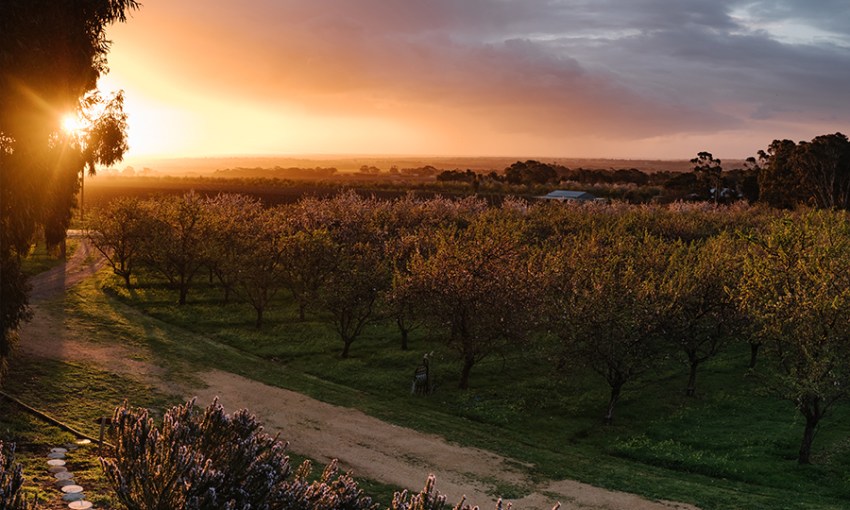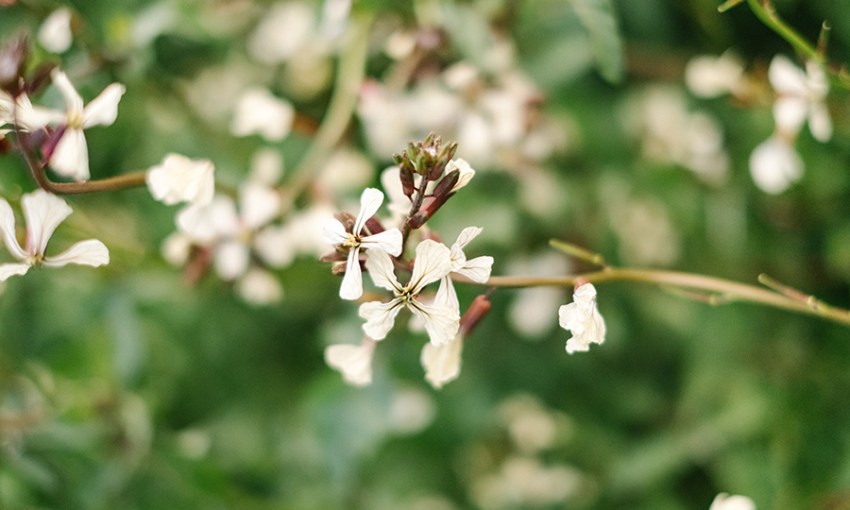In just a year and a half, Surahn and Jessica Sidhu have transformed the soil of the old almond orchard in Willunga they now call home. But this early change is nothing compared to the 300-year agricultural revolution they’re planning for the property.
Back to the future of agriculture at Papershell Farm
The nine and a half acres that is now known as Papershell Farm has been an almond orchard since the mid ’70s.
The land, planted with about 1500 trees, sits just a little away from the main street of Willunga in the Adelaide Hills – a region that was once widely dedicated to almond cultivation. Over the last three decades, though, the soil has been almost completely given over to grapes.
When they were first considering moving to the area, Surahn and Jessica Sidhu were also much more interested in wine than in nuts.
The pair were transitioning from other worlds – Surahn moving away from life as a full-time musician, which he spent touring relentlessly with outfits like The Swiss, Empire of the Sun, under his moniker Sidwho?, and in other solo projects. Jess had been a landscape architect and a teacher, and they both saw a vineyard as a way to change their lifestyle.
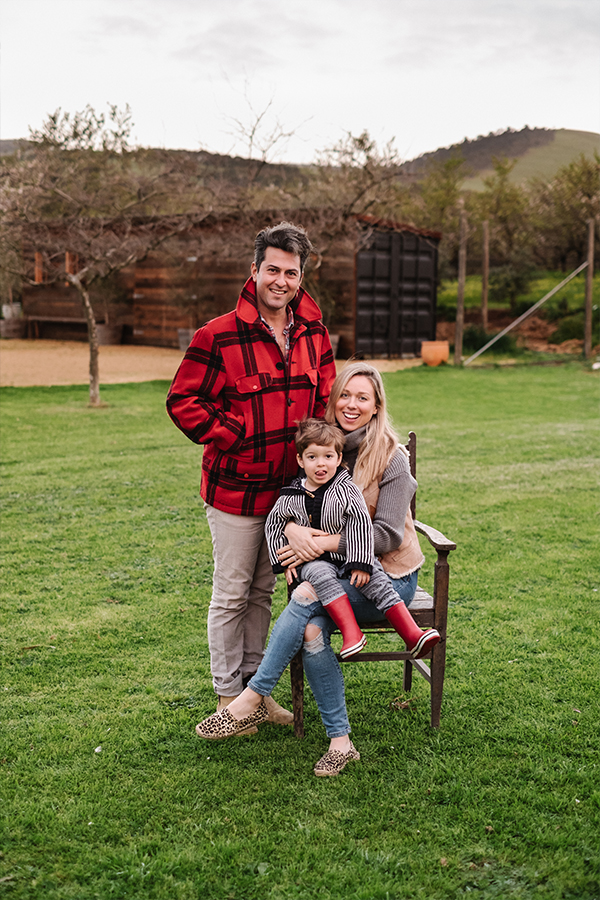
Surahn, Jessica and Theodore Sidhu at home on their farm in Willunga
“I wasn’t planning on touring the world for the rest of my life,” says Surahn. “I was thinking, ‘how am I going to stay alive for as long as possible and not burn out?’ And the answer was to do agriculture and spend time with the family.
“My Mum said you should go look at that almond orchard… I was thinking, ‘I don’t want to be an almond farmer, I want to make wine’. But I didn’t even want to make wine really – I just wanted to have some land to try and develop these ideas of sustainable farming. Wine was just a beautiful by-product.”
Upon inspecting the run-down almond property, the couple realised that while it might not be exactly what they had imagined, it had all the elements they’d need to achieve what they hoped for their children – 11-year-old Salvador and two-year-old Theodore.
“For me – it’s for our children,” says Jessica. “I’m worried about the state of the planet and the climate and creating something that will sustain us, our family, and their families to come is a pretty integral part of my philosophy.”
Moving onto the property, they immediately started a process of turning it from a conventional farm into a concern that aligned more comfortably with their own beliefs. Drawing on Surahn’s studies in permaculture and using biodynamic and natural farming ideals, they implemented an organic approach and started hand-pruning and hand-harvesting.
“We’ve seen all the seasons, and we’ve seen a huge change in the land in that time from not mechanically harvesting and not spraying. And we’ve convinced our neighbours to go organic,” says Surahn.
“The soil opens up immediately from not driving tractors on it – the biggest issue is compaction, and with mechanical harvesting of almonds there’s five lots of heavy machines you drive down each row.”
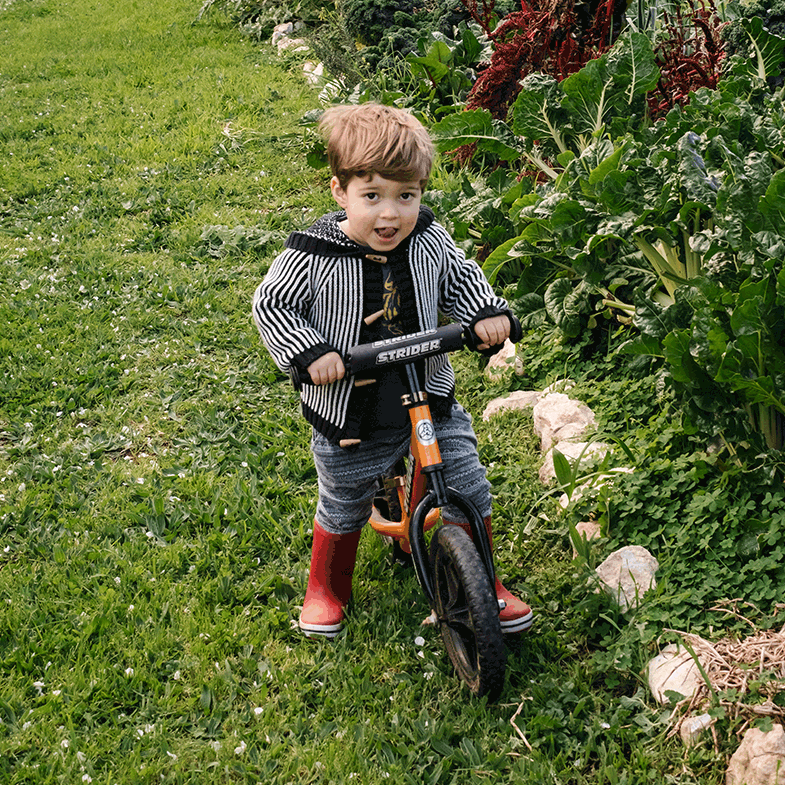
Dirt bike
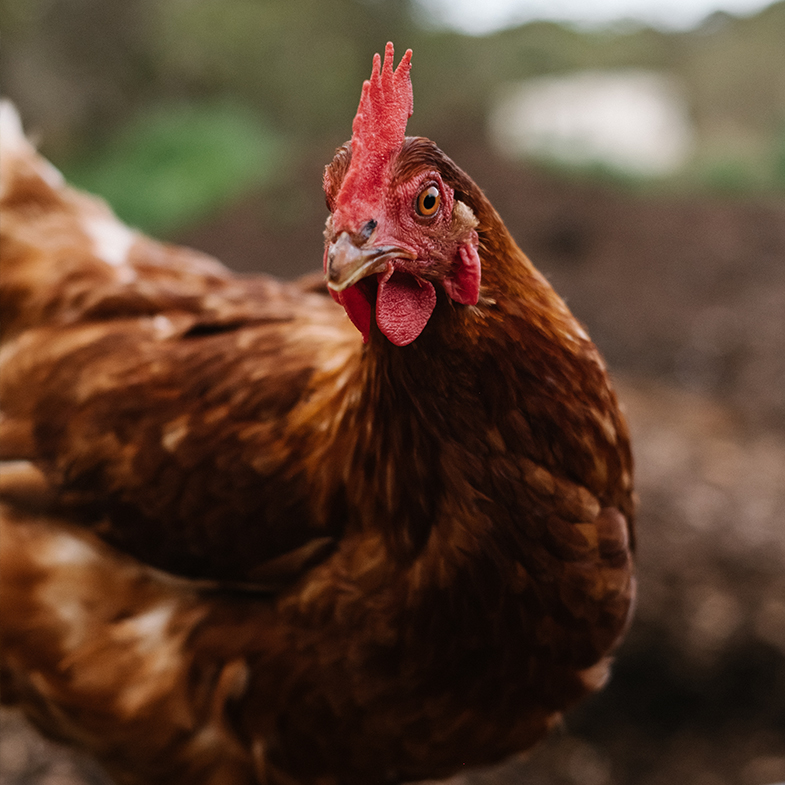
Keeping an eye on things
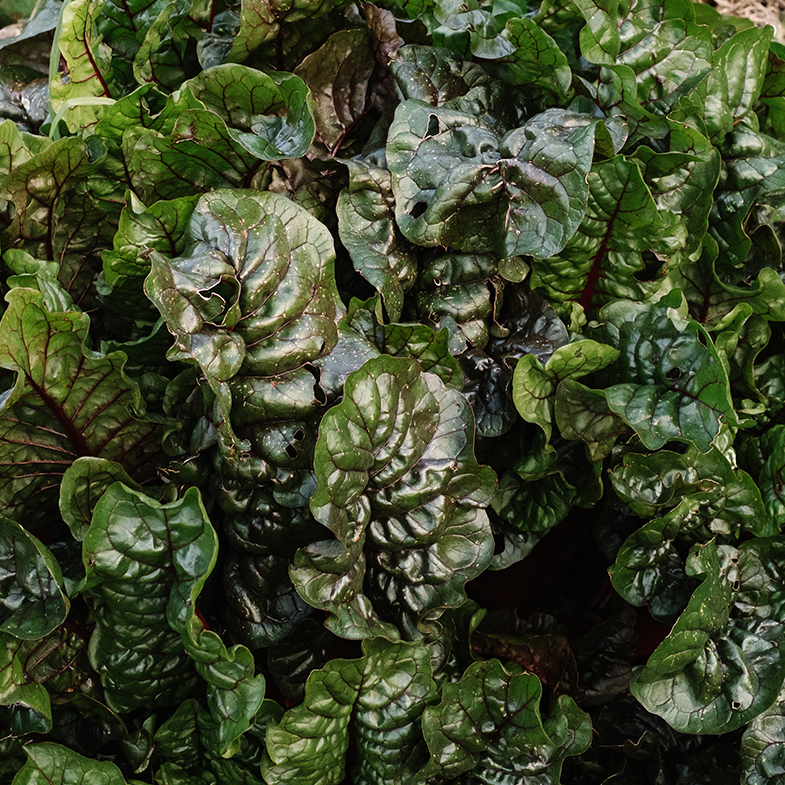
Dirt harvest
With the scale of changes Jess and Surahn are making, and with their relative agricultural inexperience, there have been some setbacks. From the first almond crop, they lost about 20 per cent to birds and a further 20 per cent to mistakes made after harvest.
But, while they say this was “heartbreaking”, they’re philosophical about the process of learning. They’re also not relying solely on almonds to keep them afloat. Instead, and in line with permaculture practice, they’re growing an array of things on the property and incorporating them into their lives and business as opportunity arises.
“It’s more a traditional farming method where you don’t hammer out a mono-crop and rely on one source of income,” says Surahn – walking us past the veggie patches they’ve installed at points on the property where rain run-off naturally settles.
“I love it when people come and stay in the Lodge [the on-site B&B], because they’re eating the almonds, they’ll be drinking the wine we’re currently making, they can go into the garden and they’re picking food. If you look at it from a commerce perspective, if I grow a carrot and if you eat that carrot in a dish that I make here, that’s the highest profit possible.”
While they do some direct wholesale, such as supplying Africola with almonds, they’re aware that traditional distribution models require a level of consistent production that doesn’t align with their low intervention approach. To work around that, Jess and Surahn are also creating an experiential side to the property by holding events and weddings.
“What we have done is, with intent, grown food and veg for events specifically,” says Jess. “So – for the Orchard Party all the carrots and beetroot and radish and leeks and everything were something we had grown knowing we had a certain amount of people to feed.”
“In Spring we’re going to do an honesty box with produce,” adds Surahn, “and then maybe the first row will become an honesty row where we plant out food for the community and people can pick their own.”
They’re ambitious, optimistic ideas, and not ones that will be realised without an inordinate amount of hard work, and plenty of mis-steps along the way. But the prospect of short-term problems don’t daunt Surahn and Jess, who see the changes they’re making on this property as part of a 300-year plan that reaches far beyond the land on which they’re standing.
“We talk about what South Australia is going to look like in 50 years,” says Surahn.
“We’re not interested in going and living in Europe or Sydney and Melbourne. We have children and we talk often about how to improve the way business is done, but it often comes back to improving the way we think.
“But, we believe the future of South Australia is the people who will travel an extra half hour to support a local baker or a local farmer.”
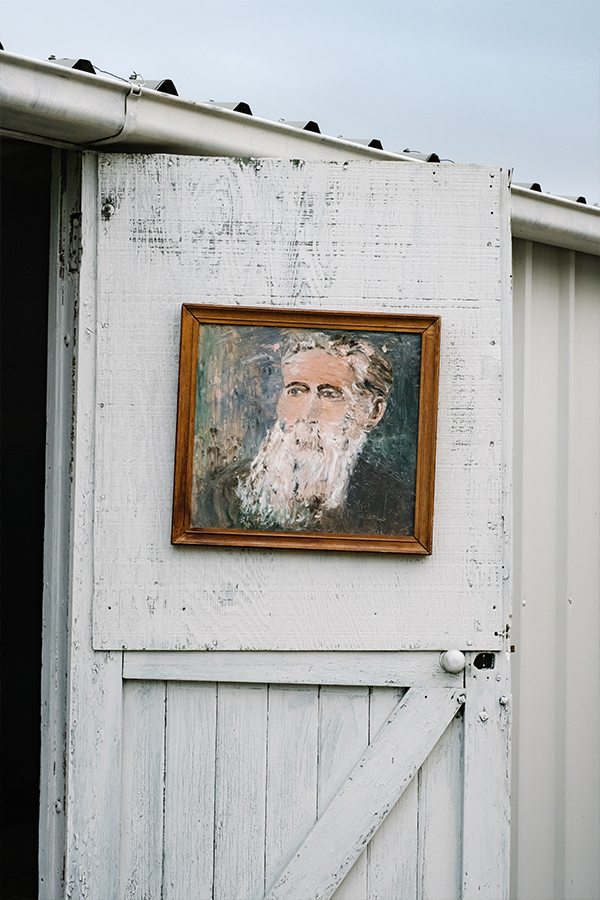
Not everyone’s an oil painting



